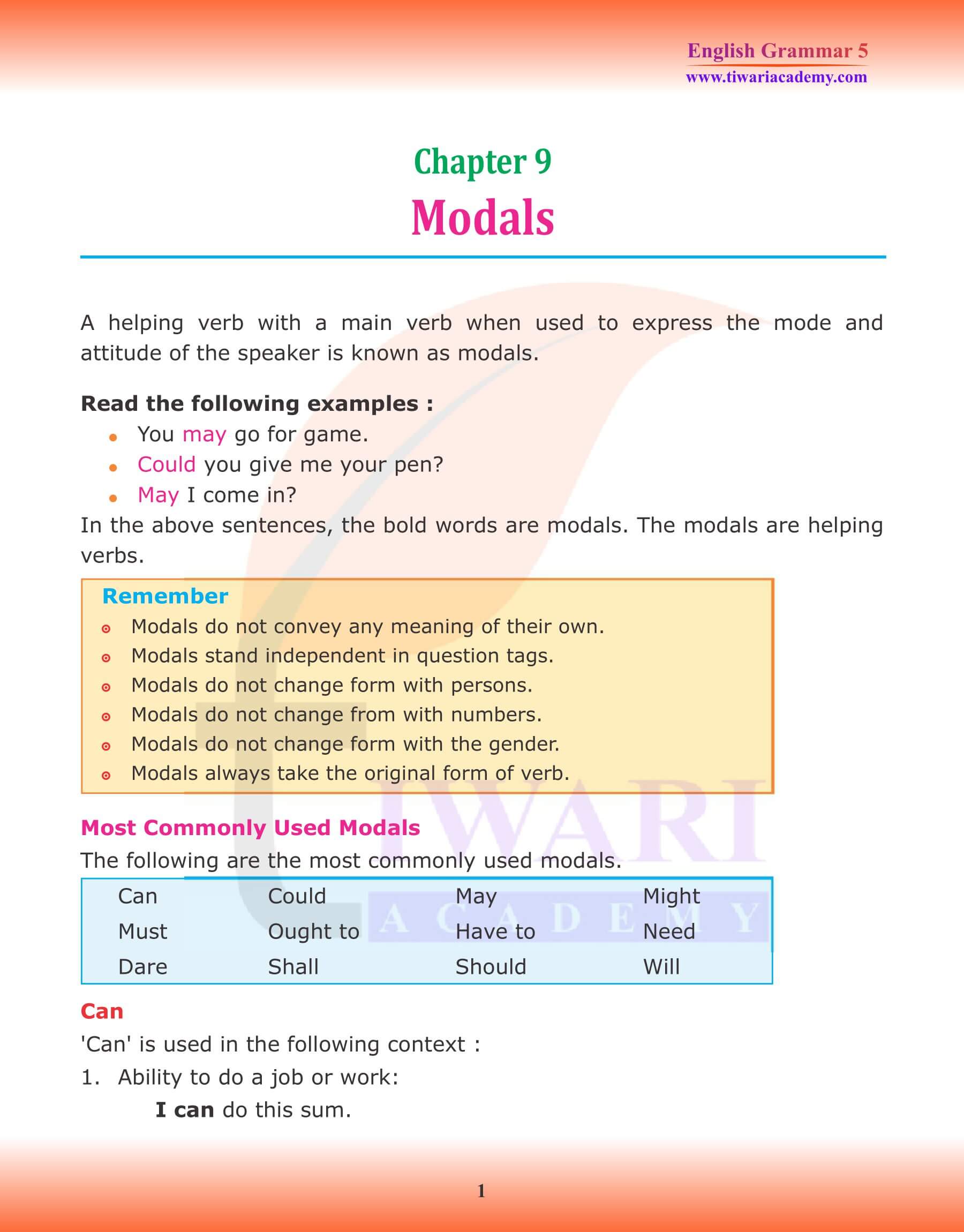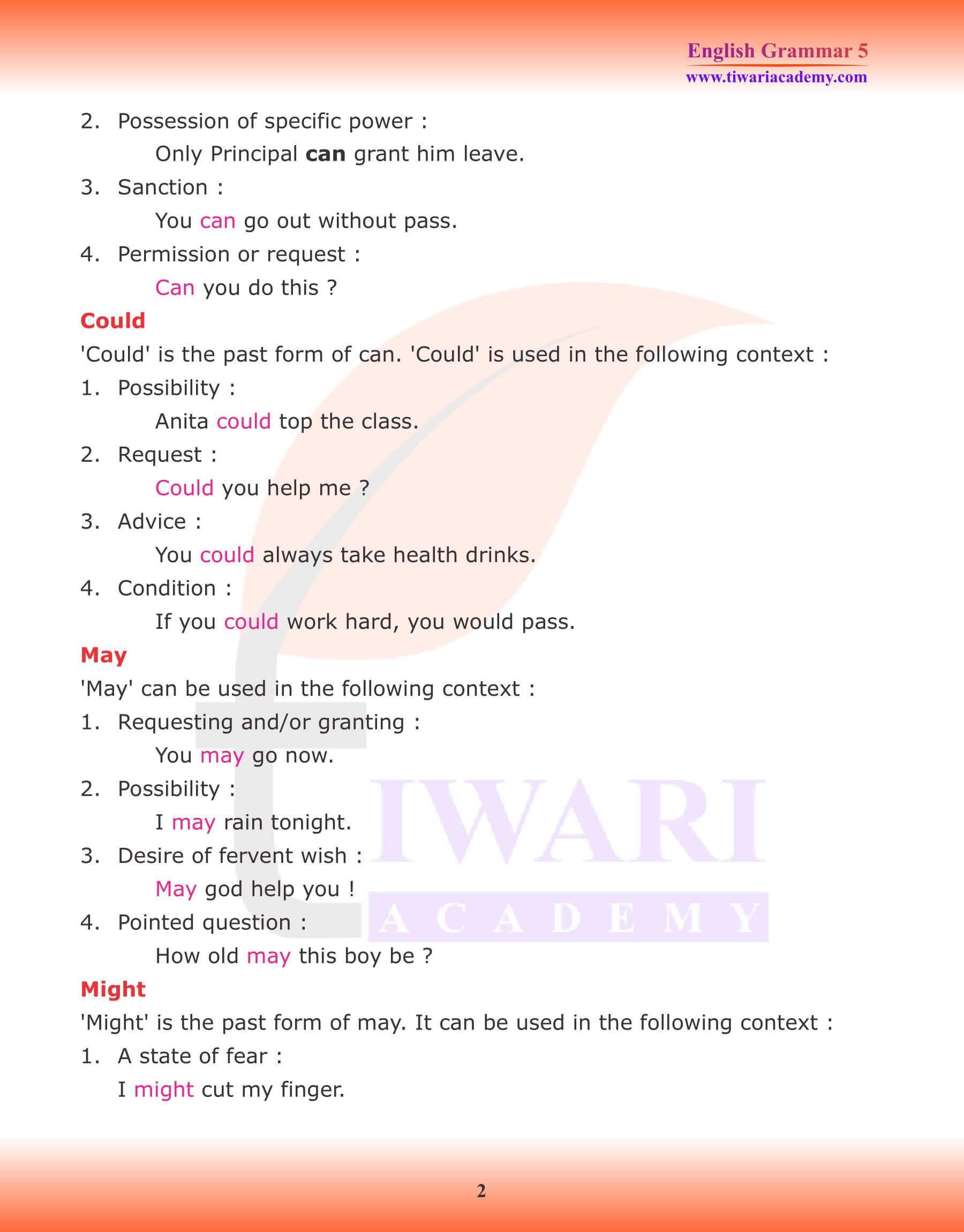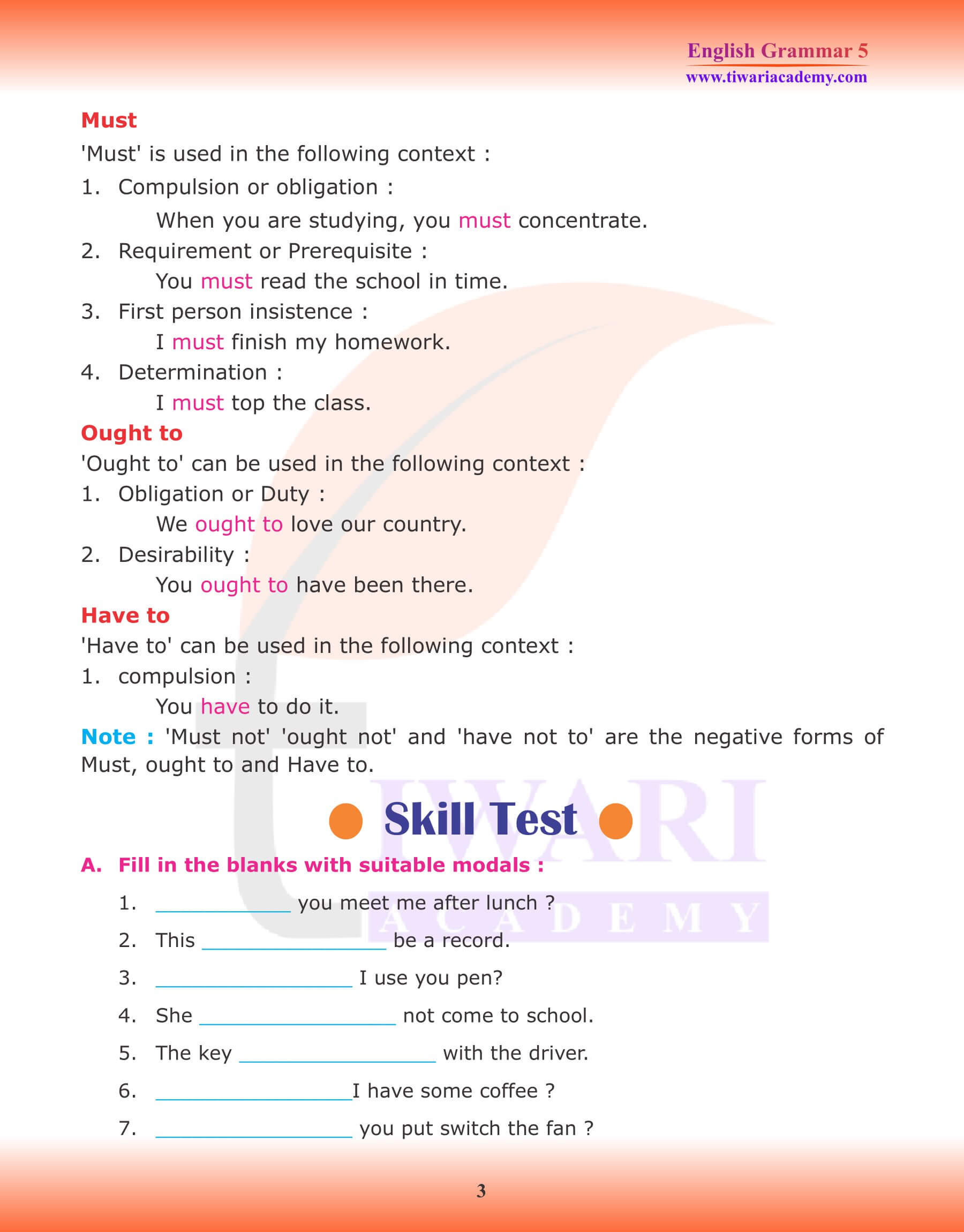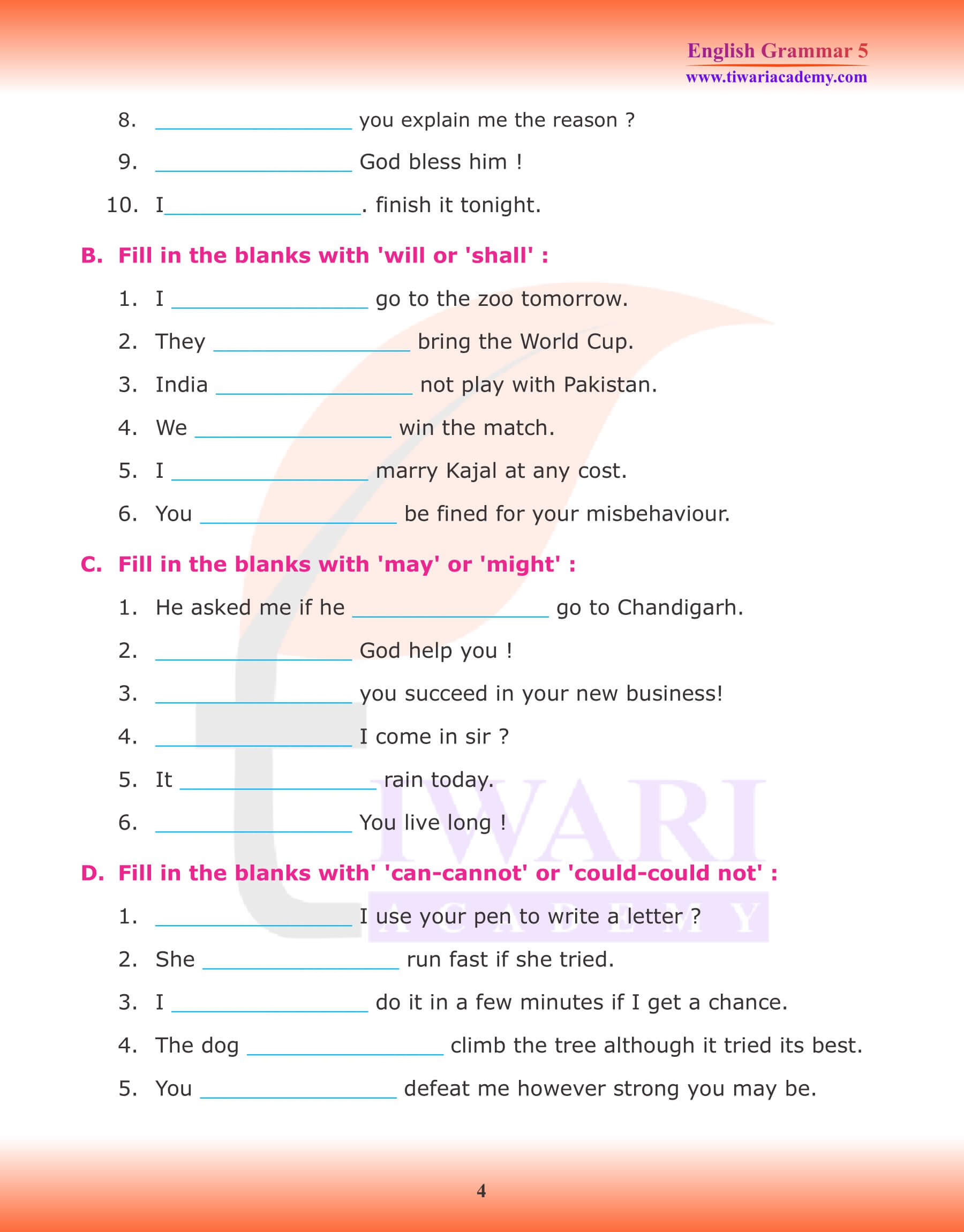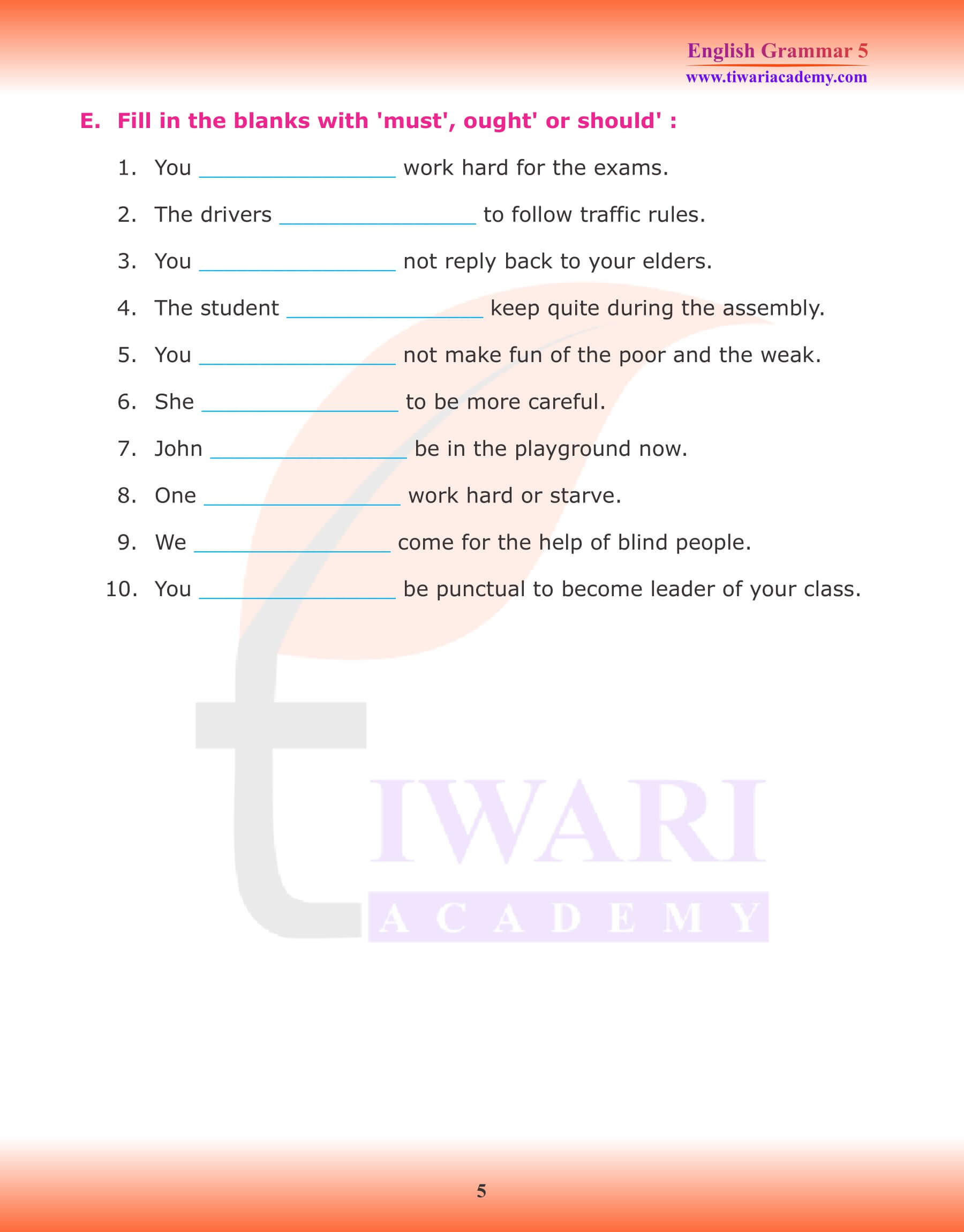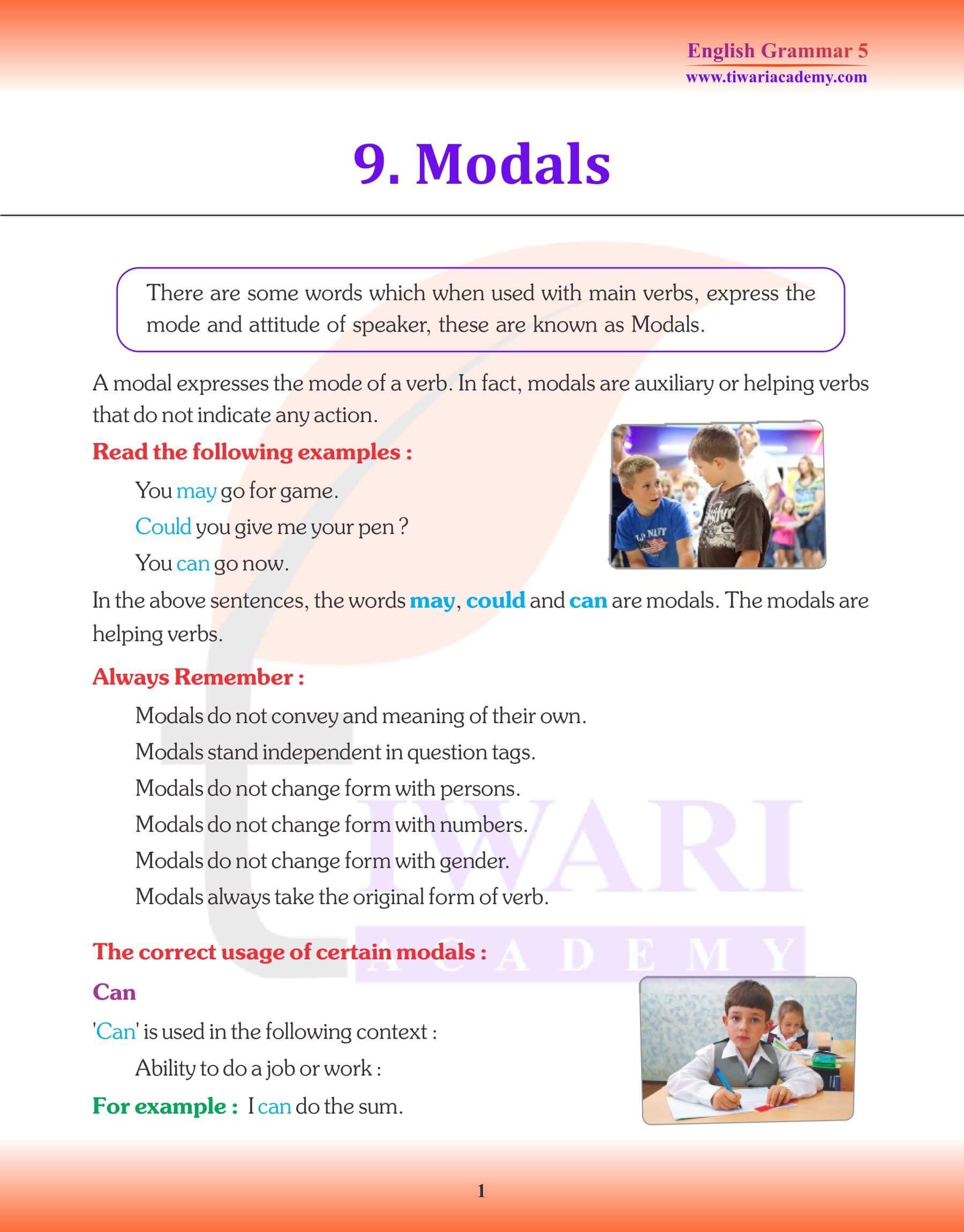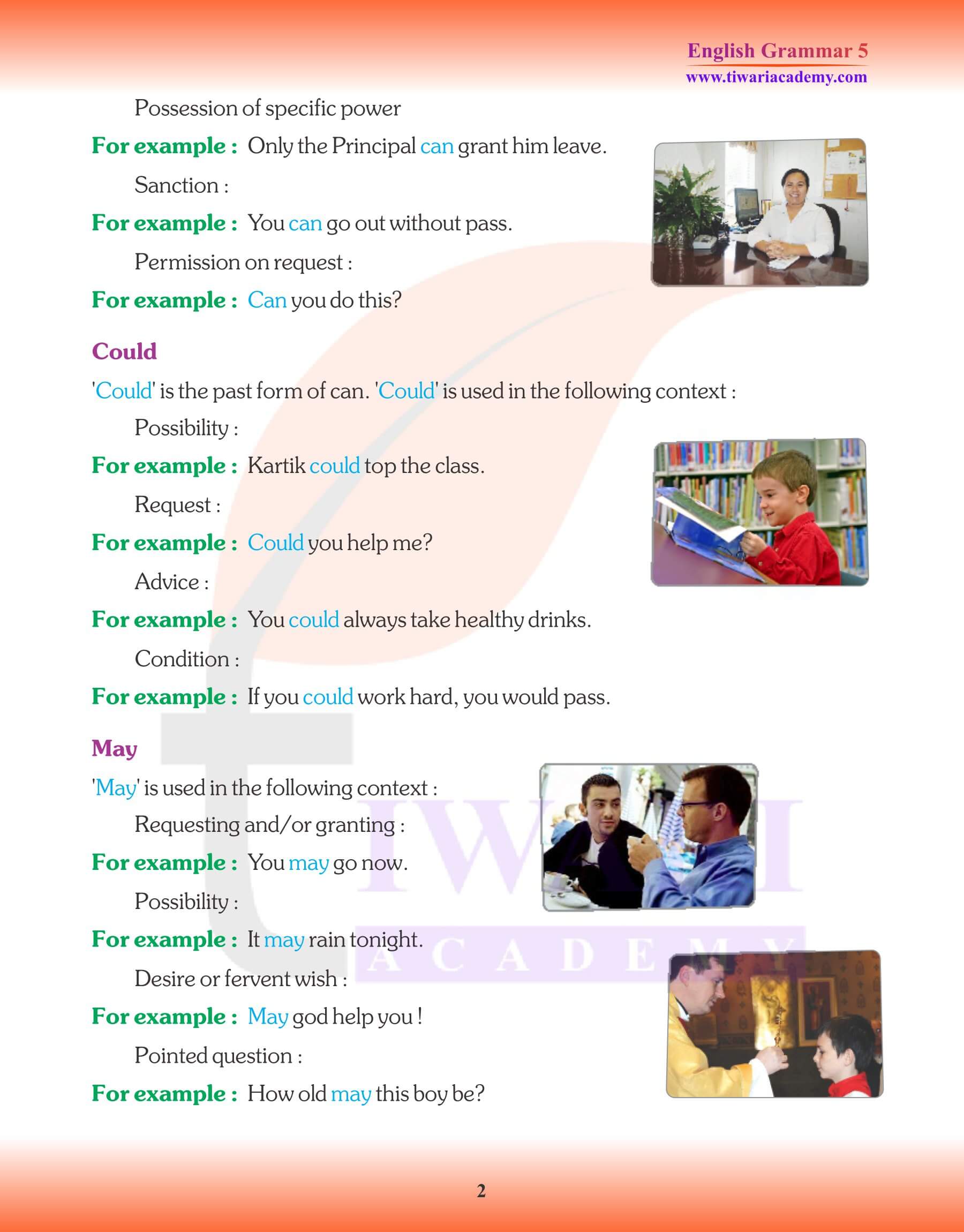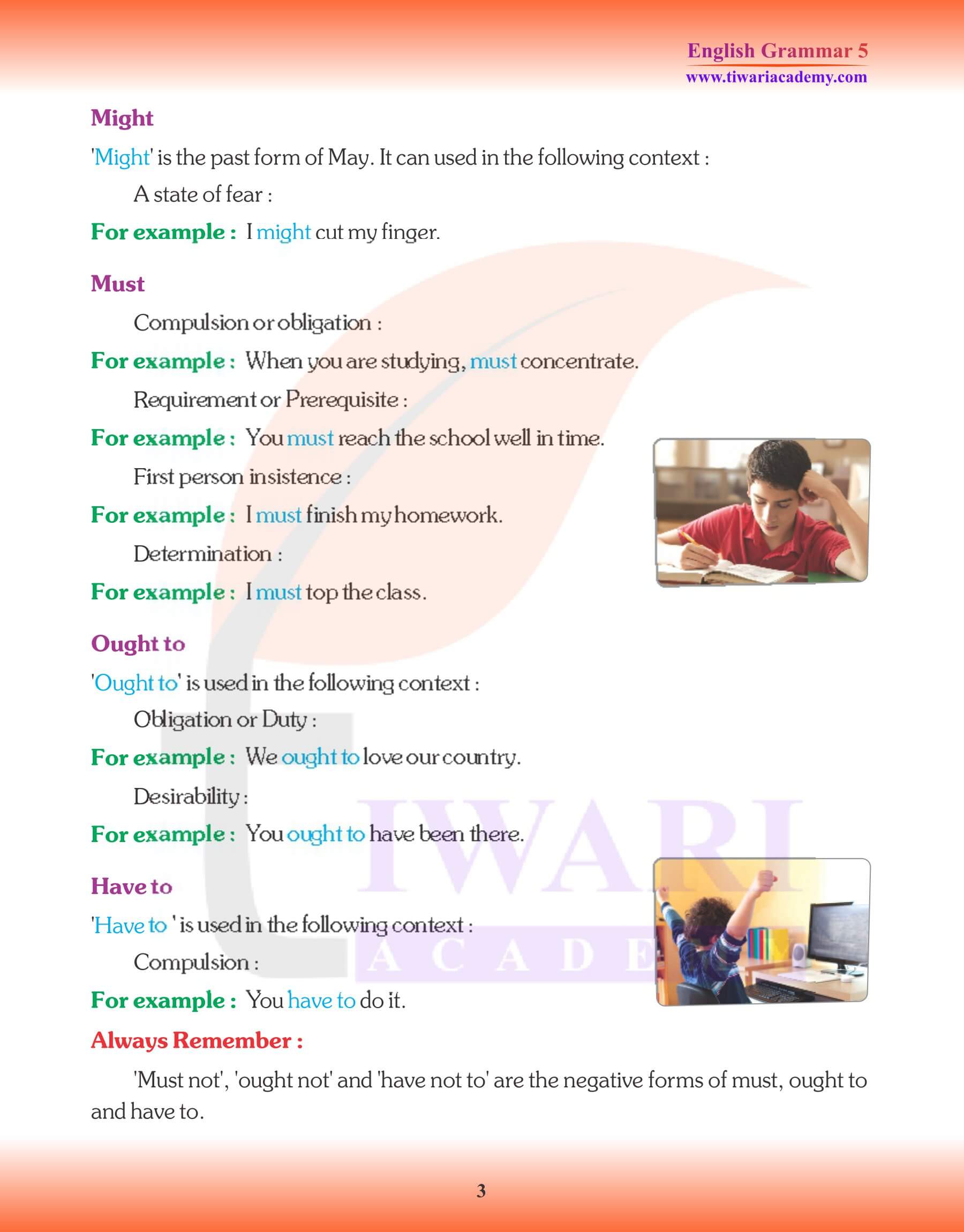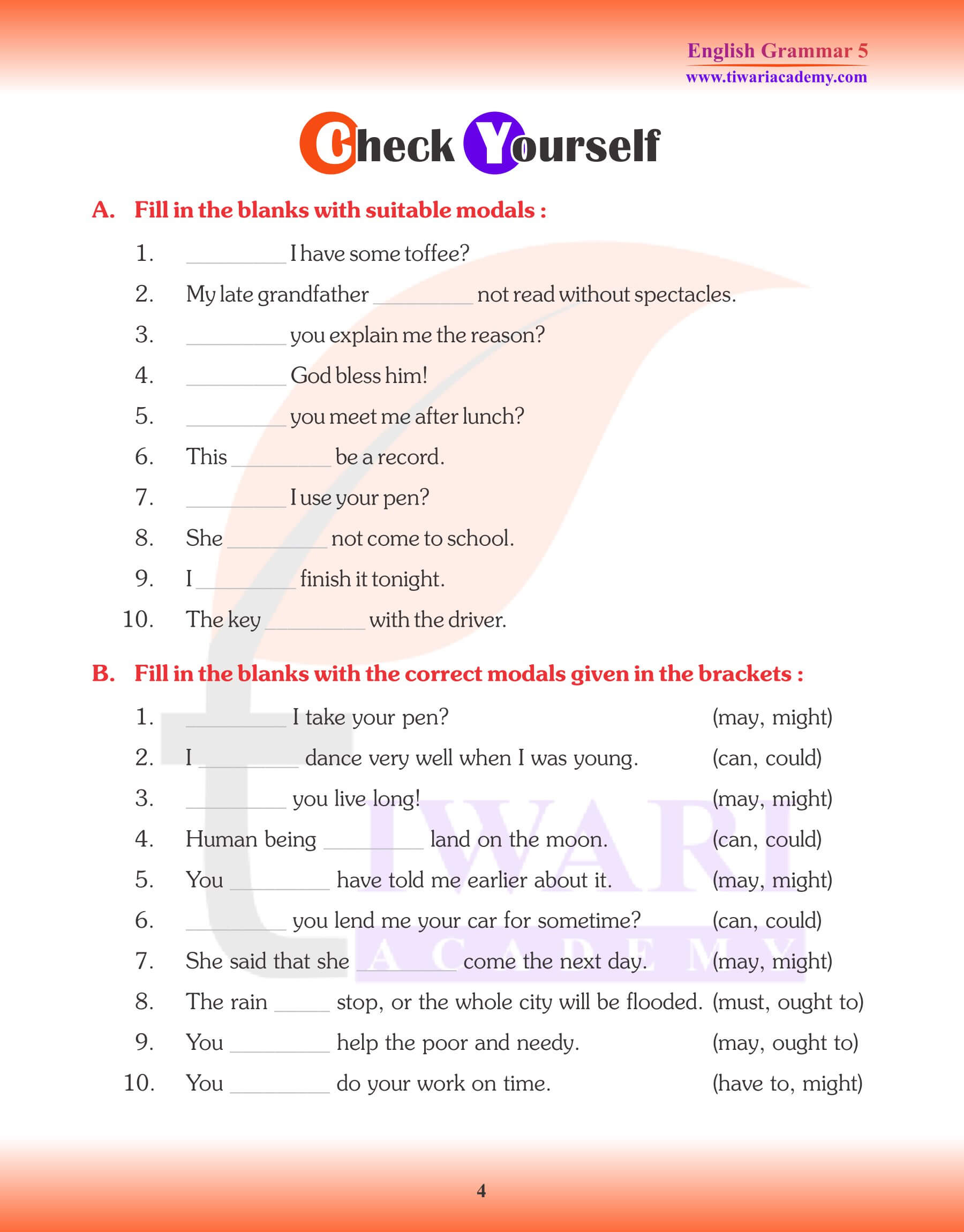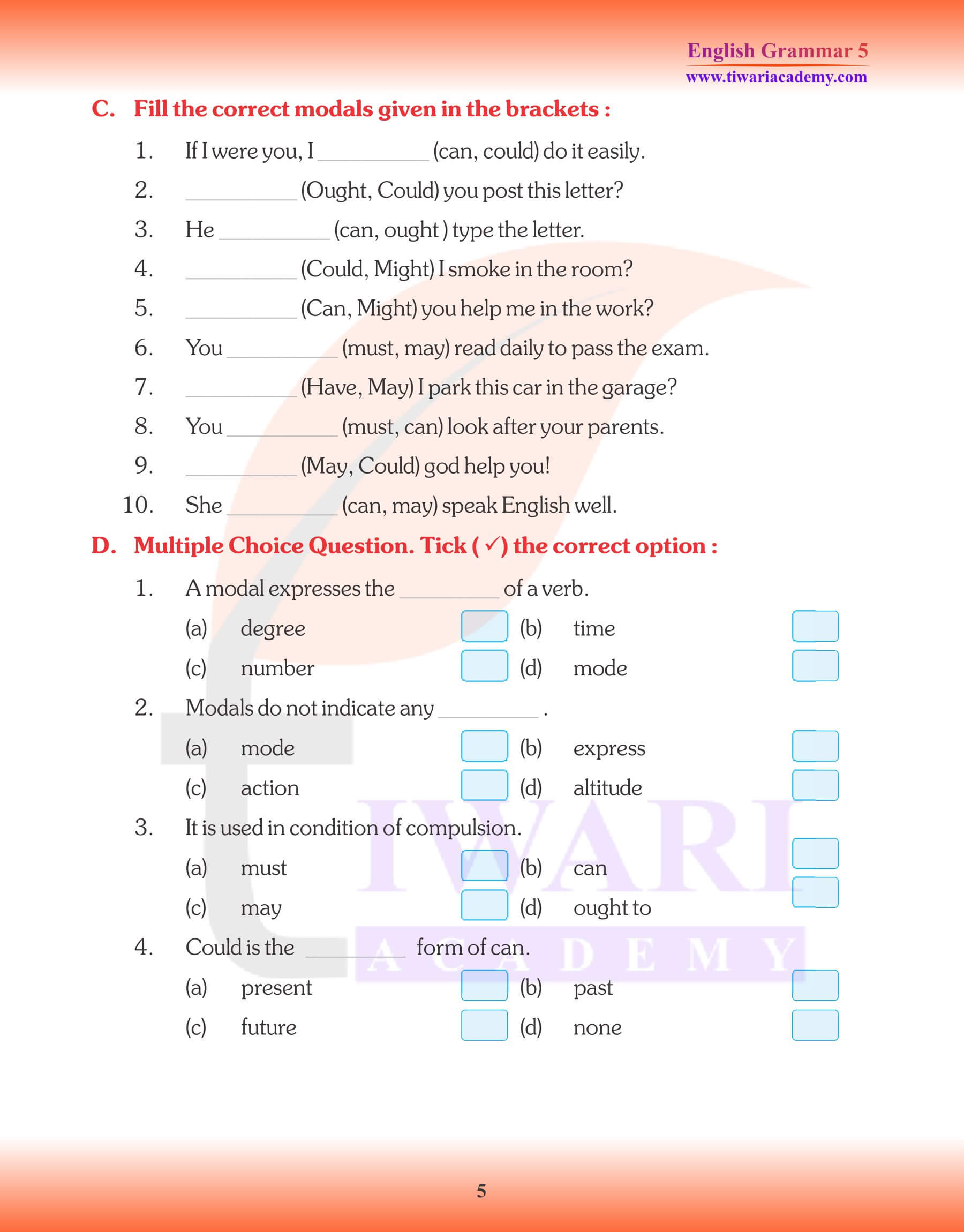NCERT Solutions for Class 5 English Grammar Chapter 9 Modals and its use to make the sentences. All the contents are updated for academic session 2024-25 for CBSE as well as UP Board, MP Board and other state boards. A helping verb with a main verb when used to express the mode and attitude of the speaker is known as Modals.
CBSE Class 5 English Grammar Chapter 9 Modals
Class 5 English Grammar Chapter 9 Modals and its uses
| Class: 5 | English Grammar |
| Chapter: 9 | Modals |
Know more about Modals
- Modals stand independent in question tags.
- Modals do not change form with persons.
- Modals do not change from with numbers.
- Modals do not change form with the gender.
- Modals always take the original form of verb.
Most Commonly Used Modals
The following are the most commonly used modals.
| Present Form | Past Form |
|---|---|
| Can | Could |
| Must | Ought to |
| Shall | Should |
| May | Might |
| Have to | Need |
| Will | Would |
Can
“Can” is used in the following context:
1. Ability to do a job or work:
Ex.: I can do this sum.
2. Possession of specific power:
Ex.: Only Principal can grant him leave.
3. Sanction:
Ex.: You can go out without pass.
4. Permission or request:
Ex.: Can you do this?
Could
“Could” is the past form of can. “Could” is used in the following context:
1.Possibility:
Ex.: Anita could top the class.
2. Request:
ex.: Could you help me?
3. Advice:
ex.: You could always take healthy drinks.
4. Condition:
Ex.: If you could work hard, you would pass.
May
“May” can be used in the following context:
1. Requesting and/or granting:
ex.: You may go now.
2. Possibility:
Ex.: It may rain tonight.
3. Desire of fervent wish:
Ex.: May god help you!
4. Pointed question:
Ex.: How old may this boy be?
Might
“Might” is the past form of May. It can be used in the following context:
1. A state of fear:
Ex.: I might cut my finger.
Must
“Must” is used in the following context:
1. Compulsion or obligation:
Ex.: When you are studying, you must concentrate.
2. Requirement or Prerequisite:
Ex.: You must read the school in time.
3. First person insistence:
Ex.: I must finish my homework.
4. Determination:
Ex.: I must top the class.
Ought to
“Ought to” can be used in the following context:
1. Obligation or Duty:
Ex.: We ought to love our country.
2. Desirability:
Ex.: You ought to have been there.
Have to
“Have to” can be used in the following context:
1. compulsion:
Ex.: You have to do it.
Note: “Must not”, “ought not” and “have not to” are the negative forms of Must, ought to and Have to.
What is a modals in Class 5 English Grammar Chapter 9?
A helping verb with a main verb when used to express the mode and attitude of the speaker is known as modals.
Ex.: You may go for game.
Which are the most commonly used modals in 5th English Grammar Chapter 9?
The following are the most commonly used modals:
Can, Could, May, Might, Must, Ought to, Have to, Need, Dare, Shall, Should, Will, Would.
Where “Have to” modal can be used according to Class 5 English Grammar Chapter 9?
“Have to” can be used in the following context:
1. compulsion:
Ex.: You have to do it.
Write the negative form of Must, ought to and Have to as per 5th English Grammar chapter 9?
“Must not”, “ought not” and “have not to” are the negative forms of Must, ought to and Have to.
